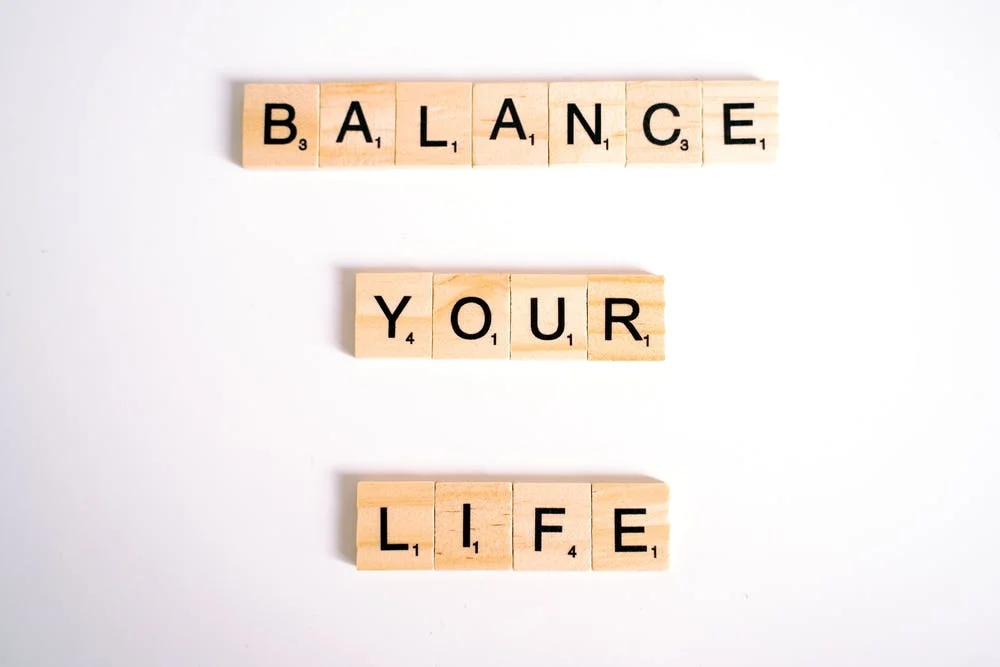|
Volume 1, Issue 2
Dear MELISSA,
"Congratulations!" he said.
"Oh no, not now. Why are the tears flowing again?," I think as I choke out "thank you."
I mean, I've been preparing for this moment for more than a year. I've been praying for my home to sell so that I could leave Dallas.
And yet, here I finally get the good news, and I am filled with all this sadness that someone has finally made an offer on my home.
Truth is as much as I am ready to move into the next chapter of my life, I am simultaneously feeling loss over leaving the first home I ever owned, the home I have lived in the longest. This has been my shelter from the world and now everything is about to change.
For as much as I have moved during my life, I like stability. I don't particularly like change. Change tends to be messy.
And my life is about to get messy as I figure out how to balance everything involved with moving. You know, packing, finding the right movers to carefully move my things, scheduling the move, unpacking and finding the right place for everything in the new home.
The new home... did I mention, I gotta find a new home? You know, the right place in the right neighborhood to create a new feeling of home.
As if that isn't enough pressure, have you seen how crazy the market is? Gees, I find a house I want to see, but it is pending before I can let my realtor know... even if I catch it within an hour of the house going on the market.
I mean really crazy.
As you can see, there is a lot to balance in this current stressful moment of life. It will test my ability to follow everything I have been teaching for decades.
Funny, I kept feeling balance was the topic for this issue. Ok, let's do this I thought as I began researching and writing, not anticipating that it would apply to me in this big way this month.
But here we are.
I'm gonna celebrate my good fortune tonight (time for my HAPPY DANCE), then I'm going to be practicing everything I "preach" (as I've been told, ha ha).
So let's get started.
Let's take a look at what does it really means to balance life in action.
Blessings of a life well lived,
Melissa
The Perfect IMPERFECT Balance

Three Keys to Creating Life Balance
To be clear, the title for this issue was not a mistaken edit. The fact is there is no perfect balance, so remove that idea out of this process. Ahhh, doesn't that feel better. Now you are freed to develop imperfect balance that continuously guides you towards that peaceful, easy feeling.
Because balance can feel so illusive, let's start by looking at what it means to be out of balance.
Being out of balance is when you are putting too much time, money and/or energy in one or more areas of life at the expense of other areas that result in noticeable unwanted consequences. This could be temporary imbalance or chronic imbalance.
For example, you could be working late on the job, in addition to taking work home in the evenings and over the weekends. As a result, you are not getting time to disconnect from the job, which may result in restless sleep, health issues and feeling irritable and snappy.
In short, this example involves putting most of your time and energy into your job at the expense of your physical and mental health. There is little or no time put into activities that would allow your mind and body to recuperate.
If this is a long term pattern (chronic imbalance), some major changes in your life are going to need to be considered. If this is a short term issue (temporary imbalance), say for a project that lasts a few months, then an increase in self care may get you back on track fairly easily.
 What's so important about balance? Balance builds resilience when life happens, so that we cope more effectively and bounce back more readily from stressors. Balance allows you to more easily handle your business without constantly waiting for the next shoe to fall. What's so important about balance? Balance builds resilience when life happens, so that we cope more effectively and bounce back more readily from stressors. Balance allows you to more easily handle your business without constantly waiting for the next shoe to fall.
However, balance should not feel like you are walking a tightrope 100 feet in the air. Instead, it serves as a guidepost for your contentment and peace, letting you know when life is swinging too far in any given direction.
I have found there there are three basic keys to developing a balanced life. These keys will look different to each person and will change many times over the course of your lifetime.
Balance is Dynamic, not Static
Just as life is not still or unchanging, balance must adapt to the shifts in your life circumstances to be effective. We are not setting something in plan and expecting it to stay this way forever, or even for a long time.
Instead, the idea involves regular readjustments with what you need to feel your best, physically and mentally. This can change from day to day or when a major life change occurs.
For instance, a couple that just brought home their first child is about to have their life turned upside down as the demands of the newborn takes precedence. Long gone are the days of sleeping in on the weekends to make up for staying out late Friday or Saturday night.
Or how about someone who just retired? Everything that directed their daily life has been uprooted. What does balance look like now?
I remember how my grandfather had to figure a new daily routine without getting in granny's way. He wanted to help with the housework, but she had perfected her routine long ago. Grand daddy had to figure out his own schedule. His schedule changed again after granny died.
There are long term changes, as the examples above demonstrate. But there are also short term issues, such as getting into an accident that wipes out your savings. To rebuild your financial safety net, some revisions to your lifestyle may be required for a time.
Again, balance is making whatever adjustments are needed to regain a sense of ease in response to your life circumstances. Feeling pulled in numerous opposing directions is exhausting and stressful and eventually your body and/or mind will take a hit.
Know Your Priorities
When I think of priorities, I always remember an exercise my philosophy professor performed in class. The demonstration involved a large jar, large rocks, pebbles, sand and finally water.
First, he filled the jar with the large rocks and then asked the class if the jar was full. The class chimed in that the jar was full.
Next he pulled out a bag of pebbles that he added to the jar, followed by each of the other items. Before placing the next element in the jar, he would ask again, "Is the jar full now?"
Each time the class would agree that the jar was definitely full, just to have the next item added.
The lesson was simple, but profound. If you do not know your priorities, others will declare them for you by pulling on your time, energy and money with their needs, wants and priorities.
Before long, you have lost yourself.
So be clear about what your priorities are, having not more than 3-5 at a time. Know they will change over the course of your life. Just be intentional when changing them.
Also, be sure to tie your goals to your priorities, so that large and small decisions involving your life support your priorities.
Some priorities you may consider: work promotion, building a business, financial stability, strong partnership, family, spirituality, physical health, mental health, recovery maintenance, a particular hobby.
When deciding what is most important to you, remember that if everything in life is of equal importance, then ultimately nothing is of importance. So it's OK to be picky. It's your life after all.
When you are clear about and protective of your priorities, balance is easier to develop and maintain. You are less likely to allow your plate to be overcrowded with activities and expenditures that drain you for too long.
Finally, balance doesn't mean that you give equal time to all your priorities. Instead, you figure out what balance looks and feels like for you. Let that guide where you place your time, money and energy.
You are Responsible for Your Balance
In a world that pulls you in a hundred directions at once, it is easy to place blame for the state of your life on work, family, or anything else outside of yourself.
But by not accepting responsibility for when your life slips out of balance, you give power over your life away.
True, there can be situations that affect what choices are available at a given time. But ultimately, you get to decide the direction for your life.
And this is why priorities are so important. Priorities guide what we take on in life.
 Discipline and consistency are required to stick to your priorities and maintain your balance. This will involve reinforcing your boundaries. Discipline and consistency are required to stick to your priorities and maintain your balance. This will involve reinforcing your boundaries.
Of course, you have to clear about what your boundaries are in order to maintain them. Saying NO whenever you can't or don't want to do something may feel uncomfortable to you. However, this is necessary if you are going to maintain your balance.
Once you know what works for you, then you make decisions accordingly. And yes, that means consciously choosing how you spend your time, money and energy.
For instance, developing habits such as leaving work at work whenever possible in order to have time for your relationship would be a must if you desire your relationship to grow stronger.
In summary, learn to manage yourself, not time. Managing yourself keeps you and your priorities at the front of every decision and prevents others from filling in your "spare" time. By respecting yourself, you demonstrate to others how you wish to be treated, or what respect looks like to you.
Signs Your Life May Be Out of Balance
- You can't seem to complete anything and the to do list just keeps growing.
- You feel you are very busy but not sure you are accomplishing anything.
- You feel burned out. You’re constantly tired, have headaches or other physical and emotional signs of stress.
- You feel like you are living by someone else’s schedule and have lost your direction.
- You don't remember the last time you did an activity you love to do just for you.
Simple Ways to Create Balance in Your Life
To maintain balance means you must first recognize when you are off balance. Then you take steps to move back towards ease. Depending on the circumstances at the time, it could be simply taking some extra naps or lunch with a friend to regroup and relax.
In the case of major life changes, it will require reviewing your life to adapt to the new priorities (new child added to the family, aging parent who has moved in, entering recovery for physical or mental health issues, get a new job schedule, etc.).
Below are some ways to help you regain your balance when life begins to pull on you. What else would you add to this list?
- Remember your priorities
- Unplug (phone, TV, computer, etc.)
- Me time (meditate, journal, do hobby, etc.)
- Rejuvenate regularly
- Get help as needed/delegate
- Acceptance, not force
- Expect the unexpected: life happens
- Respect your natural physical rhythms
-
Let go of perfectionism
|
- Say NO
- Keep a calendar with unyielding discipline
- Don't forget humor/laughter
- Respect your limits
- Know when to let go
- Express gratitude
- Drop energy draining activities when possible
-
Pace yourself
- Maintain your boundaries
|
Life is a balance between holding on and letting go. ~ Rumi
To sum up, know what you need and have the courage to put yourself first. Remember, when you don't take care of yourself, you are not able to fulfill your responsibilities; nor are you available to assist or support others. Priorities help us to know what modifications are needed, allowing us to respond to life instead of feeling like we are being run over by it.
Cool Resource
How Well Do You Maintain Balance?
If trying to maintain balance in your life feels next to impossible, you're not alone. Life can be filled with so many demands on our time and energy, never ending struggle. Take this quiz to see how well you are meeting responsibilities, while also recognizing and fulfilling personal needs and wants.
True False
[ ] [ ] 1. The only way I can successfully manage my life is to take care of myself physically and emotionally.
[ ] [ ] 2. Nurturing myself enhances my ability to help others.
[ ] [ ] 3. I eat healthy and exercise regularly.
[ ] [ ] 4. I get regular check-ups, go to the dentist, and take other preventative precautions.
[ ] [ ] 5. I set aside personal, quiet time for myself, whether I'm meditating, journaling or simply letting my thoughts drift.
[ ] [ ] 6. I experience the gifts of each season: building snowmen, skiing, bundled-up beach walks; gardening, hiking, more time outside; camping, fishing, grilling; harvesting the bounty, gathering wood, spending more time inside.
[ ] [ ] 7. Creativity relaxes me, too. I do what I love, whether that’s cooking, drawing, painting, writing, playing and instrument, working with wood or metal or another creative pursuit.
[ ] [ ] 8. Reaching out to others enriches my life. I spend quality time with family and friends.
[ ] [ ] 9. Contributing to the world provides connection and purpose, so I give my time, energy and experience where it is most useful. This may be spending time with children or grandchildren, volunteering, helping a neighbor, or any number of opportunities to be of assistance.
[ ] [ ] 10. I acknowledge and heed the emotional signals that tell me I'm out of balance: irritability, overwhelm, resentment, snappy.
[ ] [ ] 11. If I feel that I’m catching a cold, I realize I may have stressed my immune system with over-activity, so I stop and take care of myself.
[ ] [ ] 12. When I need or want to, I say no to requests for my time.
[ ] [ ] 13. I listen to and honor the requests my body makes for such things as a nap, a walk, green vegetables, hot soup.
[ ] [ ] 14. If I have something planned for myself, I don't just toss that aside when someone makes a request of me.
[ ] [ ] 15. I'm busy, but I make time to do the things I want to do, such as fishing, hunting, camping, surfing, or golfing.
[ ] [ ] 16. I'm happy. I regularly experience well-being, contentment, even joy.
If you answered false more often than true, you may want to take a look at the questions to which you answered false. See if there are modifications that could bring more balance into your life. Consider scheduling a Reclaim Your Life from Stress Strategy Session if you’d like to explore this issue further.
Author’s content used under license, © 2011 Claire Communications.
Upcoming Events
Watch in your email for the invitations to join my weekly guided meditations provided via Zoom. If you are unable to attend the meditations live, the meditations are also recorded.
May 10, 2021 01:00 PM
May 17, 2021 01:00 PM
May 24, 2021 01:00 PM
May 31, 2021 01:00 PM
June 7, 2021 01:00 PM
Connect With Me
I would love to hear how this newsletter has been helpful to you. Please feel free to respond with your comments or any questions you may have. Also let me know if there is a topic you would like more information on in future issues.
Visit our website and social media for more resources and information:
Facebook: https://www.facebook.com/MelissaFairchild.LCSW
Website: https://melissafairchild.coachesconsole.com/
LinkedIn: https://www.linkedin.com/in/melissa-fairchild-lcsw-525b9828/
Free Report: https://melissafairchild.coachesconsole.com/

Don't Keep Us a Secret!
If you enjoy receiving our newsletter, then you know the exceptional value and care we put into every issue. If you know anyone who can benefit from this powerful resource, please don’t hesitate to forward the email to your important people in your life. We promise to take good care of them.
Our Vision: To help one million individuals and families to develop more love, joy, peace and happiness through living their best lives.
Why We Do What We Do...
"Reclaim Your Life from Stress" is about learning to live fully, instead of surviving from one crisis to the next. It’s about making room for life, which is meant to be lived joyfully. We guide and support you through this simple, yet powerful, process to build a peaceful, resilient life one step at a time.
|